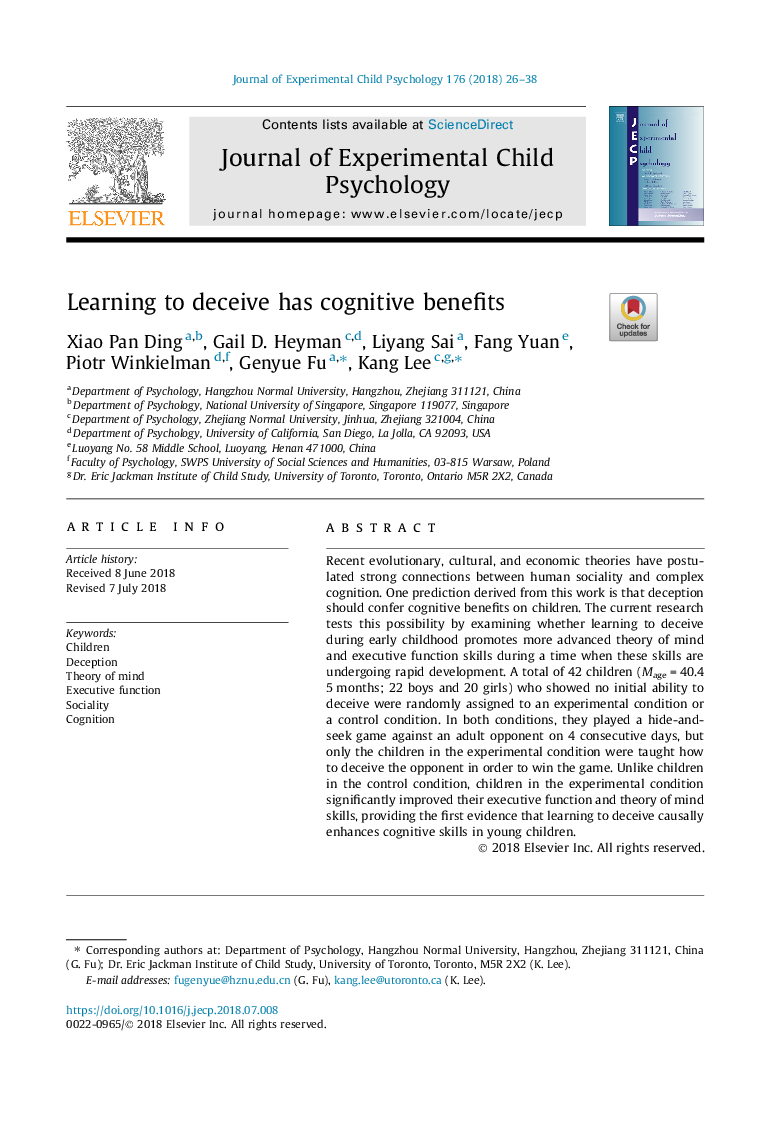| کد مقاله | کد نشریه | سال انتشار | مقاله انگلیسی | نسخه تمام متن |
|---|---|---|---|---|
| 7273600 | 1473436 | 2018 | 13 صفحه PDF | دانلود رایگان |
عنوان انگلیسی مقاله ISI
Learning to deceive has cognitive benefits
ترجمه فارسی عنوان
یادگیری فریب فواید شناختی دارد
دانلود مقاله + سفارش ترجمه
دانلود مقاله ISI انگلیسی
رایگان برای ایرانیان
کلمات کلیدی
فرزندان، فریب، نظریه ذهن، عملکرد اجرایی، اجتماعی بودن، شناخت،
موضوعات مرتبط
علوم انسانی و اجتماعی
روانشناسی
روانشناسی رشد و آموزشی
چکیده انگلیسی
Recent evolutionary, cultural, and economic theories have postulated strong connections between human sociality and complex cognition. One prediction derived from this work is that deception should confer cognitive benefits on children. The current research tests this possibility by examining whether learning to deceive during early childhood promotes more advanced theory of mind and executive function skills during a time when these skills are undergoing rapid development. A total of 42 children (Mageâ¯=â¯40.45â¯months; 22 boys and 20 girls) who showed no initial ability to deceive were randomly assigned to an experimental condition or a control condition. In both conditions, they played a hide-and-seek game against an adult opponent on 4 consecutive days, but only the children in the experimental condition were taught how to deceive the opponent in order to win the game. Unlike children in the control condition, children in the experimental condition significantly improved their executive function and theory of mind skills, providing the first evidence that learning to deceive causally enhances cognitive skills in young children.
ناشر
Database: Elsevier - ScienceDirect (ساینس دایرکت)
Journal: Journal of Experimental Child Psychology - Volume 176, December 2018, Pages 26-38
Journal: Journal of Experimental Child Psychology - Volume 176, December 2018, Pages 26-38
نویسندگان
Xiao Pan Ding, Gail D. Heyman, Liyang Sai, Fang Yuan, Piotr Winkielman, Genyue Fu, Kang Lee,
